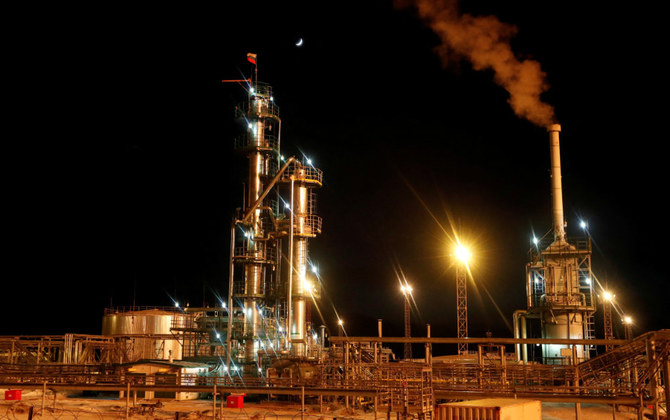Will spring thaws offer relief from a European embargo on Russian oil?

https://arab.news/cvxwt
The short answer to the above question is, not at all, but we will circle back to that.
There are several issues posing risks to the global economic outlook which we discussed in our article last week. Collectively, they have put key world financial indices — such as the S&P 500 — on the defensive as reflected by the year-to-date declines being seen across broad markets. Looking forward, those issues still constitute threats to the pace of global recovery, and little that transpired last week lessen those concerns.
While the macro-risks to the economy and global oil demand are hardly inconsequential, we continue to see risks being disproportionately greater on the supply side of the equation. Our proprietary analyzes of the oil price term structure suggest underlying market sentiment is actually tilted heavily in favor of our view.
In this regard, we note that Germany last week withdrew its opposition to an embargo of Russian oil, which marked a significant development. Germany produces just 2 percent of the oil it consumes, with imports from Russia accounting for between 33 percent to 38 percent of its domestic needs. For Europe as a whole, about one-third of oil imports are sourced from Russia, and Europe as a whole accounts for about half of all the crude and refined products that Russia exports.
Germany’s position notwithstanding, a wholesale European oil embargo on Russian supply remains to be seen. One question that arises, is whether the move from winter to spring in Europe will soften the blow of an embargo due to lower oil usage?
Our analysis shows there to be a distinct seasonal pattern for European oil use, but the assessment also shows the low point usage typically happens in the first-quarter of the year. European demand actually rises after the first quarter and then peaks in the third quarter. While tangential to the discussion, we note that the first quarter of the year is also the low point in global consumption which rises afterwards and then peaks in the fourth quarter.
The idea of a pan-European ban on Russian crude and refined products presents significant logistical challenges. One might assume it would be easy for European-bound flows of Russian oil to be diverted to Asia and Asian-bound supplies from other non-Organization of the Petroleum Exporting Countries and OPEC producers simultaneously diverted to Europe, but it is not.
Dislocations of this scale affect travel times needed for shipping and raise issues about available tanker tonnage — not to mention refining issues because of the different type of crude refiners would have to handle. Europe’s in-land refineries make the notion of waterborne non-Russian crude deliveries a tough call – particularly for Eastern European facilities which have crude piped directly from Russia into those plants.
The next two weeks tend to be a data-heavy part of the cycle. Data for Russian production in April will be telling and we will see the preliminary inventory data for Europe, which is the literal epicenter of initial buyer hesitancy seen for Russian crude and refined products. With 50-plus million barrels of emergency oil already sold — still not quite one-sixth of total planned sales — we have not seen the global oil balance loosen.
• Michael Rothman is the president and founder of Cornerstone Analytics, a US-based consultancy focusing on macro-energy research. He has nearly 40 years of experience covering the global energy markets and has been attending OPEC meetings since 1986. He is also the author of “Cornerstones of Life” which is available on Amazon.










































